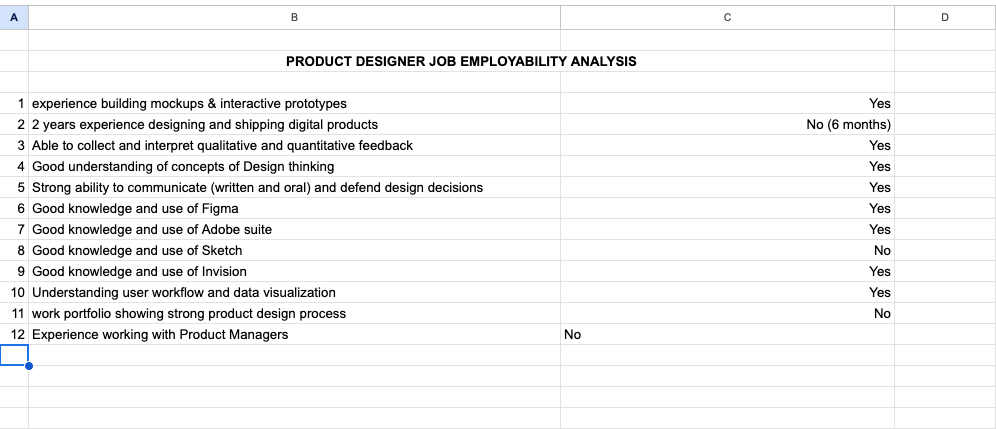Want to Find a High Paying Job Fast? Follow these Solid Job Hunting Tips

There are lots of advice out there on how to find good jobs. You may have read some of them so why should you read this one? Well, this is not your regular job search advice.
We break down the steps that have helped a lot of people to find not just a job, but high paying ones.
1) Define your interest and focus.
Getting a high paying job starts with deciding on what areas to focus on. What are your interests, strengths and areas where you can compete. High paying jobs are naturally competitive so you have to be playing in an area where you stand a chance. It has to be an area where you have the passion to learn and become better than most people or your competitors.
You cannot get a high paying job if you do not focus. Don't be a jack of all trades and master of none. Rather find that specific type of job that typically pays well and where you have significant interest and passion. Once you have found your job area of interest the rest can follow.
2) Research the Industries You Want to Work in
Now that you are clear on what type of job you want, you should go a step further to identify the industries you may like to work in. You may want a career in HR but in which industry exactly? Banking, Oil & Gas, Technology, Manufacturing etc?
Make a list of the industries where you will like to search for jobs and start researching them.
So two key things at this stage;
- Make a list of the job types/specialisations you'd like, based on your interests, passion, personal qualities, skills etc
- Make a list of specific industries/companies you'd like to work in
3) Do Your Strength/Weakness Analysis
What most job advice don't tell you is to find a way to measure your employability. Measuring your employability involves finding all the key requirements for the kind of job you are interested in and comparing with what you currently possess.
It's simple. Make a spreadsheet and on the left column list all the major requirements, skills etc listed in most of the job adverts you see for the kind of job you are interested in. Eg you want to get a high paying Product Designer job, you check for several product designer job ads in your country/region of interest and make a list of the major requirements wanted by the employers.
Then on the right column you grade or mark each of the requirements that you have. See the example below;

The idea of the Employability Analysis is to get an idea of how much employable you are compared with requirements for the type of role you are interested in.
From the analysis you know how suitable you are, and what you may be lacking. NOTE that you do not need to have 100% of key requirements to be considered for a job. Once you have a decent number of the major requirements you should apply.
4) Improve on Your Requirement Deficit
If from your employability analysis you lack a lot of the skills/conditions required for the job you should focus on bringing yourself up to speed.
Some of the ways you can do this include; taking courses, taking on volunteer jobs to acquire the experience and real skills needed, reading/learning what you can, take on internships/part time paid or unpaid jobs to build your portfolio etc.
5) If You are Ready to Start Applying for Jobs
If you have a sufficient level of the key requirements for the job or you've improved yourself to the point where your employability analysis is looking decent you can then focus on searching for and applying to as many relevant jobs as possible.
Create a compelling resume/CV: Your resume should highlight your skills and experience relevant to the job you're applying for. Use action verbs and quantify your accomplishments where possible. You can use good CV builders to design and create professional resumes for your job search.
Use job boards and job search engines: Spread your job search tentacles to job engines/boards that enable you sign up for alerts on specific types of jobs you are interested in. These job sites save you lots of hours you would spend in checking for jobs on many company career pages. If you are looking specifically for remote jobs use remote job sites that list remote jobs open for your region (eg Remote Jobs for Africa)
Network: Don't rely only on job boards because some of the best jobs come from referrals. Reach out to your network, including friends, family, former colleagues, and acquaintances, to see if they know of any job openings. Let them know the exact job areas you are interested and ask them to drop you a line when they learn of any opening. Attend industry events and connect with professionals in your field.
Pitch Yourself: If you identified several companies that usually recruit for your job area, find the unit heads and heads of HR on social media and follow them. Don’t bug them or beg them, that turns off a lot of people. Find ways to engage meaningfully with them when they post things you are familiar with. Reach out with very brief messages, direct to the point. Point out how you have improved yourself and how much you’d love to work with them should any opportunity in so and so area come up. If the opportunity presents itself you can send across your CV
Apply Quickly: Once you find a job opening that interests you, apply quickly. Hiring managers often start reviewing resumes as soon as they receive them, so submitting your application early can give you an advantage.
Practice Interviewing: Practice interviewing with a friend or family member to help you feel more confident and prepared. Research common interview questions and prepare answers that highlight your skills and experience.
Be Organised and Follow up: Keep track of the jobs you've applied for, the companies you've contacted, and the people you've spoken to. This will help you stay organized and follow up appropriately.
Be Persistent and Consistent: Finding a good job can take time and effort. Don't get discouraged if you don't get hired right away. Keep applying and networking, and eventually, you'll find the right opportunity. Be determined even if it will take a thousand applications!
Looking for flexible, remote jobs that enable you work from anywhere? Check out the top remote jobsite for Africa.
